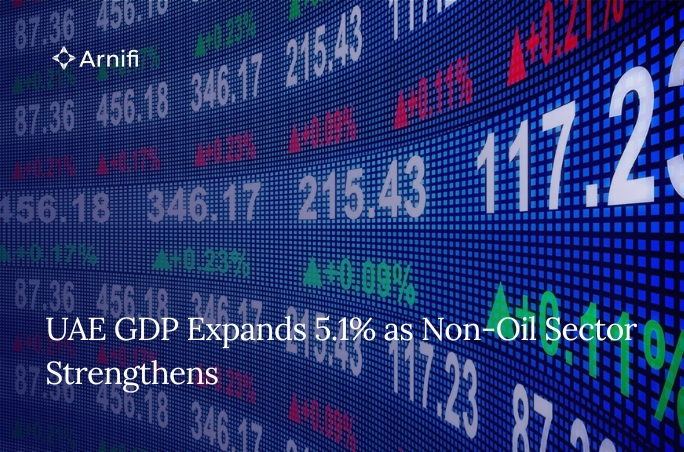Future of Taxation: UAE Tax Regulations 2025
by Shethana Dec 23, 2024  9 MIN READ
9 MIN READ

The United Arab Emirates is known for being friendly to businesses and its friendly UAE tax regulations. One reason for this is its low taxes in the past. However, things are changing. In recent years, the UAE has started to change its tax laws. This shows that the country wants to modernize and fit with international rules. As we help plan for 2025, it is important to understand how these tax laws are changing. Businesses and investors in the UAE need to be ready for this. The Ministry of Finance is likely to share more rules and guidance soon. This will help businesses know how to deal with the new tax changes.
Major Milestones in UAE Tax Policy
A key moment in the UAE tax regulation history was when the corporate income tax was introduced in 2023. A 9% corporate income tax on business profits above a certain level marked a big change in the UAE’s tax policy. This change was meant to meet global standards and create a fairer environment for businesses.
The new rules also brought in a Domestic Minimum Top-up Tax (DMTT) for large multinational enterprises. This step helps to align with the OECD’s Base Erosion and Profit Shifting (BEPS) initiative. This plan shows the UAE’s commitment to fight tax avoidance and improve tax transparency worldwide.
Importantly, free zones in the UAE still provide tax incentives for businesses working in those areas. These incentives, along with the country’s prime location and strong infrastructure, continue to draw in foreign investment. This helps with the UAE’s strategy for economic diversification.
Anticipating Changes in 2025
The year 2025 is likely to bring changes to the UAE’s tax system. The main focus will still be on keeping businesses happy. However, there will be an effort to create a more varied and sustainable way to raise money. This will follow what many other countries are doing.
The International Monetary Fund (IMF) has mentioned that the UAE might add new taxes. These could include property taxes, luxury taxes, or environmental fees. This shows that the UAE’s tax system is always changing. Businesses need to stay flexible to deal with these possible changes.
Predictions for New Tax Regulations
As the UAE works on diversifying its revenue, there is a lot of talk about possibly new tax rules. The UAE aims to follow global standards, so these new taxes might focus on things like protecting the environment, managing wealth, and growing the digital economy.
There is also speculation about property taxes and luxury taxes. This matches what many governments around the world are doing to reduce wealth gaps and encourage sustainable actions. Although there are no definite plans yet, businesses should keep an eye on these potential changes.
The UAE is still a safe haven for investors. The government promises to keep a friendly business climate. Any new rules will likely be introduced step by step and clearly, to avoid confusion and help businesses understand what to expect.
The Impact of Global Economic Trends on UAE Taxation
The UAE is in a good spot in global markets. This means its tax rules often change based on what is happening in the world. For example, because of the fight against climate change, many countries are raising environmental taxes. The UAE has big goals for renewable energy and might think about adding similar taxes to encourage eco-friendly habits.
Conflicts around the region and political issues can also affect how the UAE sets its taxes. Even though the UAE’s economy is currently stable, recent conflicts have had some effect on its real GDP growth. To stay safe from risks and keep money flowing, the government might look for new ways to get income by introducing new taxes.
Also, the growing use of technology around the world brings both problems and chances for tax officials. As the UAE is a leader in using technology, it could either create new tax rules or change the old ones to make taxation fair in the digital world.
Corporate Taxation in the UAE: A Closer Look
The start of corporate tax in 2023 was a big change for businesses in the UAE taxes system. A 9% tax rate applies to any income above a certain limit. This change brings the UAE’s tax system closer to global standards, but it is still attractive when compared to other important business centers.
The UAE’s corporate tax rules focus on fairness and honesty. They aim to create equal chances for all businesses while drawing in foreign investments and supporting a mix of different industries. It is important for companies to understand these rules. This knowledge helps them follow the law and improve their tax plans.
Understanding the Corporate Tax Framework
The corporate tax rules in the UAE are made to be simple and good for business. They also follow global standards. The main corporate tax rate is 9%, which is among the lowest worldwide. This makes the UAE very appealing for foreign investment.
Multinational enterprises (MNEs) that make global revenues above a certain amount must pay the UAE’s Domestic Minimum Top-up Tax (DMTT). This rule makes sure that large MNEs pay their fair share of taxes in the UAE, no matter where they report their profits. The DMTT shows the UAE’s dedication to stopping tax avoidance and following the OECD’s BEPS project.
The corporate tax system in the UAE gives clear guidance on important topics. These include tax residency rules, transfer pricing rules, and how Free Zone entities are treated. This clarity helps businesses follow the tax rules more easily and makes for a stable tax environment.
Compliance and Exemptions for Businesses
Understanding compliance requirements is paramount for businesses operating under the UAE’s corporate tax regime. Businesses must maintain accurate financial statements, adhere to transfer pricing rules, and meet filing deadlines to avoid penalties.
The UAE offers exemptions for certain entities and activities. Government entities, qualifying public benefit organizations, and specific investment funds are exempt from corporate tax. Additionally, Qualifying Free Zone Persons (QFZPs) enjoy a 0% tax rate on qualifying income.
To determine eligibility for exemptions and navigate the intricacies of corporate tax, businesses should seek professional advice. Tax experts can provide tailored guidance, ensuring compliance, and helping businesses optimize their tax positions.
| Qualifying Free Zone Person (QFZP) Criteria | Description |
| Adequate Substance | The entity must have a physical presence, employees, and business activities within a designated free zone in the UAE. |
| Qualifying Income | The entity must generate income from specific activities, such as manufacturing, holding shares, or providing certain financial services, as outlined in the UAE corporate tax law. |
| Transfer Pricing Compliance | The entity must adhere to transfer pricing rules when conducting transactions with related parties to ensure arm’s length pricing. |
| Audited Financial Statements | The entity must prepare and maintain audited financial statements in accordance with International Financial Reporting Standards (IFRS). |
VAT and Its Future in the UAE Economy
The introduction of VAT in 2018 was an important change for the UAE’s money management. With a VAT rate of just 5%, it has one of the lowest rates in the world. This tax helps the government earn money and also supports its efforts to diversify the economy.
In the future, the UAE may look at how effective VAT is and decide if they need to make changes to the rates or rules. The government might think about matching VAT rates with other GCC countries or offering exemptions for certain sectors to help boost economic growth.
Analyzing the Effects of VAT on Businesses and Consumers
The introduction of VAT in the UAE taxes scheme greatly affected both businesses and consumers. For businesses, it required them to follow new rules. They had to register for VAT, add VAT to goods and services when needed, and file VAT returns regularly.
At first, adjusting to these new steps was challenging, but the low tax rate of 5% helped ease the burden on consumers. The VAT system in the UAE is known for being one of the most efficient in the Middle East. It brings in government revenue while still keeping a good environment for businesses.
Overall, VAT has improved clarity in business deals, expanded the tax base, and aided the UAE’s efforts to diversify its economy. As the VAT system develops further, businesses and consumers can look forward to improvements for better efficiency and fairness.
Possible Adjustments to VAT Rates and Rules
The VAT system in the UAE is still new, but changes to rates and rules might happen. The Ministry of Finance may look into making these changes to keep up with international standards or to respond to the changing economy.
Here are some possible VAT changes:
- New VAT rates: The UAE could create a zero-rated VAT for essential goods and services. This could help lower-income consumers.
- Broadening VAT coverage: The UAE might include more sectors or activities in the VAT system. This would be similar to what other GCC countries do.
To deal with these changes, businesses need to stay updated on any changes to VAT rules. Getting professional advice from tax experts can give helpful information and support to follow new rules.
In conclusion, the future of taxation in the UAE is expected to change by 2025. With new global economic trends and potential tax rules coming soon, businesses need to stay alert and adjust to stay compliant. It is important for businesses to understand the corporate tax rules, deal with VAT, and prepare for changes. These steps will help them succeed during these new tax reforms. Stay informed and be proactive about taxation to protect your financial plans for the future. If you need help with these changes, connect with our experts for personal support.
About Arnifi
Arnifi is digital first Corporate service provider helping companies enter the Middle East region, starting with UAE and Saudi Arabia markets. Founded and backed by professionals from Amazon, Souq and other large companies operating in KSA – the team understands what it takes to succeed as a startup in both UAE and Saudi Arabian markets, apart from going through the setup process multiple times. Arnifi will provide a truly digital experience to entry and scale up of companies both UAE and Saudi Arabia. Discover tailored solutions and strategic partnerships that propel your business forward. Check out at – www.Arnifi.com for more details.
For product related offers, click here.
Also Read: Discover the Top Industries in UAE Today
Top UAE Packages

Related Articles
Top UAE Packages



